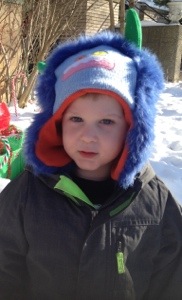A long time ago, when I was a kid, I used like being sick. I got sick a lot. I caught colds all the time, I had at least a sinus infection a month. My mom drove herself crazy dragging me to the doctor; I even had sinus surgery.
Only I was faking. For several years while I was in my early teens, it felt safer somehow to hide out at home, so I exaggerated my pain. I liked being sick, and I didn’t mind that I wreaked havoc on my life. I flunked math, and to this day I can’t do much beyond addition and subtraction. Complex equations elude me.
Around the time that I had that surgery, I had a really cool algebra teacher. I remember him with crystal clarity despite missing most of my time in his class. Mr. Cross was older, cute, male, and funny, and he liked me; in other words, he was perfect. He showed concern about my lack of mathematical ability, but much more compellingly, he showed an interest in me. Nothing out of place, just genuine concern for a girl who he could tell was stumbling.
He wrote me a message in my yearbook, and I’m telling you, I still think about it on a regular basis. He wrote, “Good luck, Christi. You’ll do great if you just stop being sick.†I liked Mr. Cross. I admired him, and I wanted his approval. So I did it. I stopped being sick.
You know, I still caught the occasional cold. I had not seen my last sinus infection. I just stopped using my colds as excuses to hide out at home. It wasn’t easy.
Years passed, and all the typical things happened: college, marriage, more college, work. And a few years into adulthood, I found myself in the gastroenterologist’s office with a bout of acid reflux. I followed the doctor’s instructions and traded spaghetti, wine, and chocolate for a daily pill that took the pain away. Just because I didn’t call myself sick doesn’t mean that I wasn’t.
At 28, I hesitated before I got pregnant with Anna. My medicine was off-limits for pregnancy. In blind faith I went cold-turkey, and I thought of Mr. Cross. I’d like to say that I willed his yearbook message to be a prophecy, but it was more like desperate hope than anything.
Blind faith paid off and I’m not sick anymore. But Mr. Cross was no prophet, only an algebra teacher smart enough to know that when you find the flow in life, things work themselves out. Thanks for the equation, Mr. Cross.






